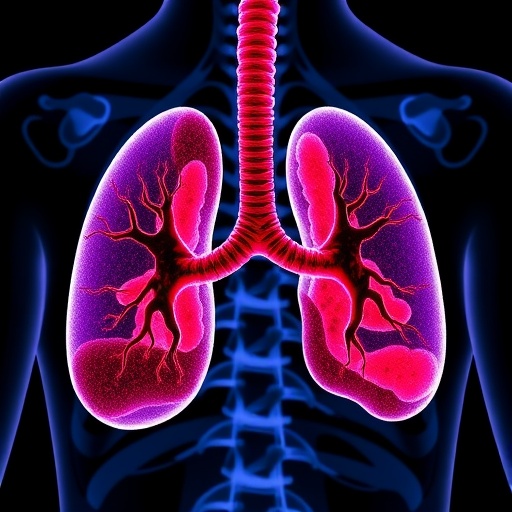Low-grade non-muscle invasive bladder cancer (NMIBC) poses a unique conundrum in the realm of urology. While patients diagnosed with this variant of bladder cancer generally face a favorable prognosis, managing this condition can be fraught with complications. This complexity arises primarily from the tumor’s tendency to recur frequently, necessitating a comprehensive understanding of its biological underpinnings and the development of more effective treatment strategies.
Statistics reveal that nearly half of the patients diagnosed with low-grade NMIBC will see a recurrence within the first five years following their diagnosis. This recurrence rate, despite the low probability of stage progression, underscores the urgent need for continuous surveillance in these patients. Currently, the lack of consensus regarding the optimal frequency and duration of follow-up poses a significant hurdle, leaving both healthcare providers and patients in a state of uncertainty.
Traditionally, the management of low-grade NMIBC has revolved around routine office cystoscopy. Despite the advancements in our molecular understanding of cancer biology, very few innovations have emerged in diagnostic and therapeutic options over the past quarter of a century. This stagnation can be perplexing, especially in a landscape where technological advances in other fields have dramatically transformed patient care.
The discrepancies in clinical practices related to the management of low-grade NMIBC are concerning. Diverse approaches can lead to variations in treatment outcomes, resulting in increased financial burdens on patients and healthcare systems alike. It is evident that a shift is required; evolving our understanding of the disease and its progression is paramount to refining treatment protocols and optimizing patient outcomes.
Recent advancements in research have shed light on molecular signatures and biomarkers that hold the potential to redefine how low-grade NMIBC behaves and how it can be treated. Identifying specific molecular markers could provide invaluable insights, not just for prognosis but also to guide personalized treatment strategies for patients, ultimately leading to improved care.
Emerging therapies represent another significant shift in the approach to treating low-grade NMIBC. Innovative drug-delivery systems are being developed, alongside immunomodulatory agents and targeted therapies, which promise to enhance treatment efficacy. These advancements could also mitigate the reliance on frequent surveillance cystoscopies, thereby reducing the treatment burden on patients and healthcare resources.
The complexity of low-grade NMIBC calls for a multi-faceted approach to research and treatment. Prospective validation of novel biomarkers is essential, as it will help to streamline how we approach patient management in the clinic. By elucidating the molecular landscape of this cancer type, researchers can better predict individual patient outcomes and tailor interventions accordingly.
Furthermore, as we explore new treatment modalities, understanding the interactions between emerging therapies and established treatment protocols will be crucial. The potential for immune-based therapies to modify the tumor microenvironment presents an exciting avenue for future inquiry. If successful, such treatments could redefine how we consider recurrence patterns in low-grade NMIBC patients.
While novel therapies offer hope, the integration of these strategies into clinical practice necessitates a cultural shift within the healthcare system. A critical evaluation of both cost-effectiveness and patient accessibility will be paramount for ensuring that advancements benefit a broad patient population. The challenge moving forward lies in balancing innovative therapies with fiscal responsibility in healthcare delivery.
As we work toward refining treatment options, it’s also important not to overlook the psychosocial dimensions of living with low-grade NMIBC. The anxiety associated with potential recurrences can weigh heavily on patients. Acknowledging the emotional impacts of this diagnosis is crucial in delivering holistic care, and this should be an integral part of healthcare provider training.
In conclusion, the landscape surrounding low-grade non-muscle invasive bladder cancer is evolving. While the condition presents unique treatment challenges, the progress made in understanding its molecular underpinnings and the development of novel therapies gives a glimmer of hope. As researchers and clinicians collaborate to find innovative solutions, the goal remains clear: enhance patient care, reduce healthcare burdens, and improve outcomes for those affected by this condition.
In the realm of bladder cancer, the path forward remains complex and laden with challenges. Yet, the continual quest for knowledge and the development of advanced treatments pave a promising way toward transforming the management of low-grade NMIBC. Future endeavors in the research landscape will not only define how we treat this specific cancer type but will also illuminate the broader scope of oncological practices going forward.
Ultimately, as we push the boundaries of what is known about low-grade NMIBC, the aim is to create a paradigm shift in how this condition is approached from diagnosis to treatment. This journey will require concerted efforts from researchers, clinicians, and patients alike. Collectively, there is the potential to foster an environment that prioritizes patient outcomes while aligning with the evolving landscape of medical advancements.
Subject of Research: Low-grade non-muscle invasive bladder cancer
Article Title: Low-grade non-muscle-invasive bladder cancer: molecular landscape, treatment strategies and emerging therapies
Article References:
Wen, L., Miyagi, H., Spiess, P.E. et al. Low-grade non-muscle-invasive bladder cancer: molecular landscape, treatment strategies and emerging therapies. Nat Rev Urol (2025). https://doi.org/10.1038/s41585-025-01072-0
Image Credits: AI Generated
DOI: 10.1038/s41585-025-01072-0
Keywords: Bladder cancer, low-grade NMIBC, biomarkers, molecular signatures, immunotherapy, treatment strategies, recurrence, cystoscopy, patient management, healthcare burdens.




